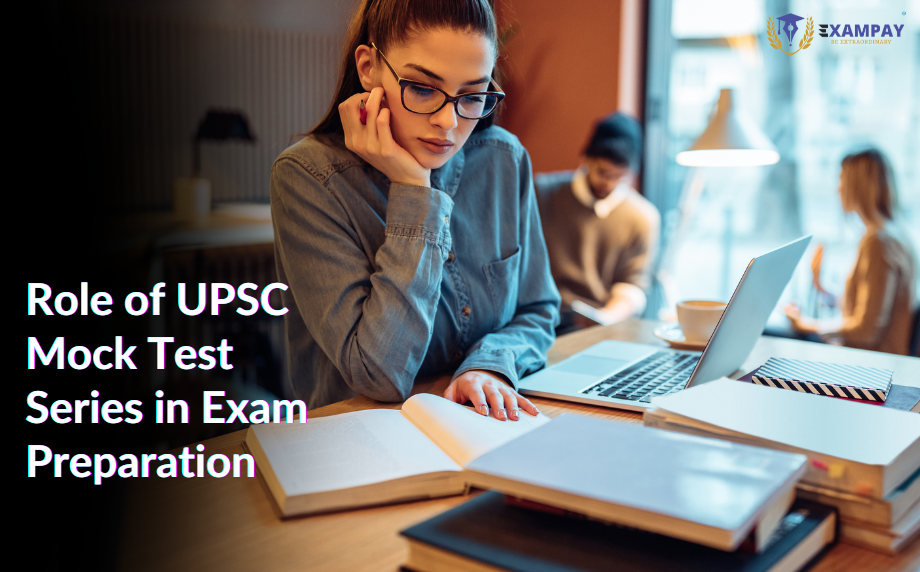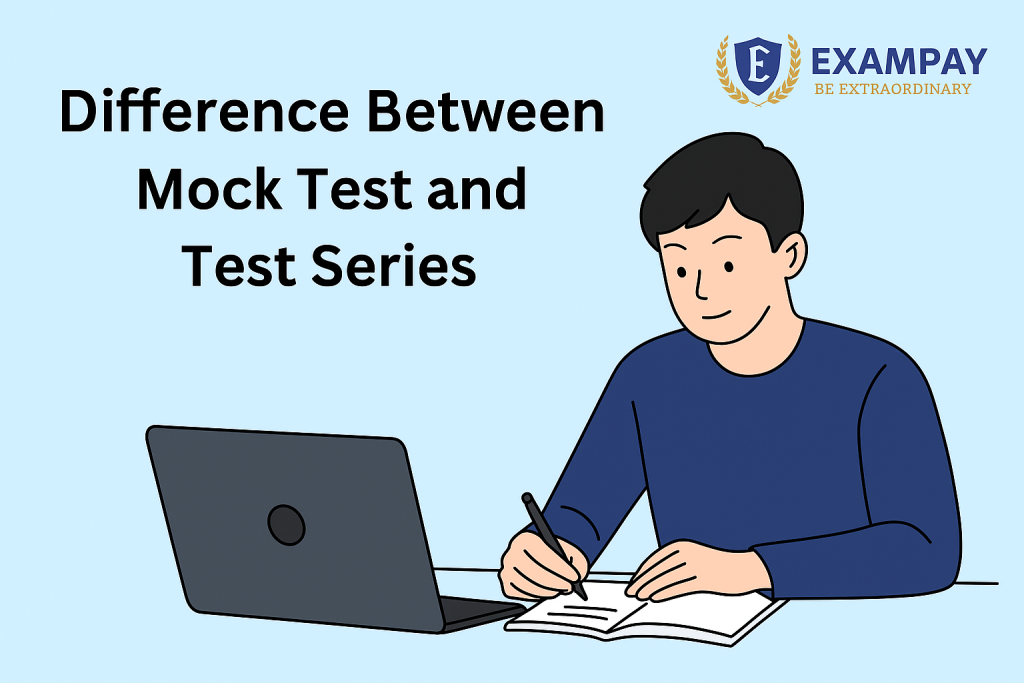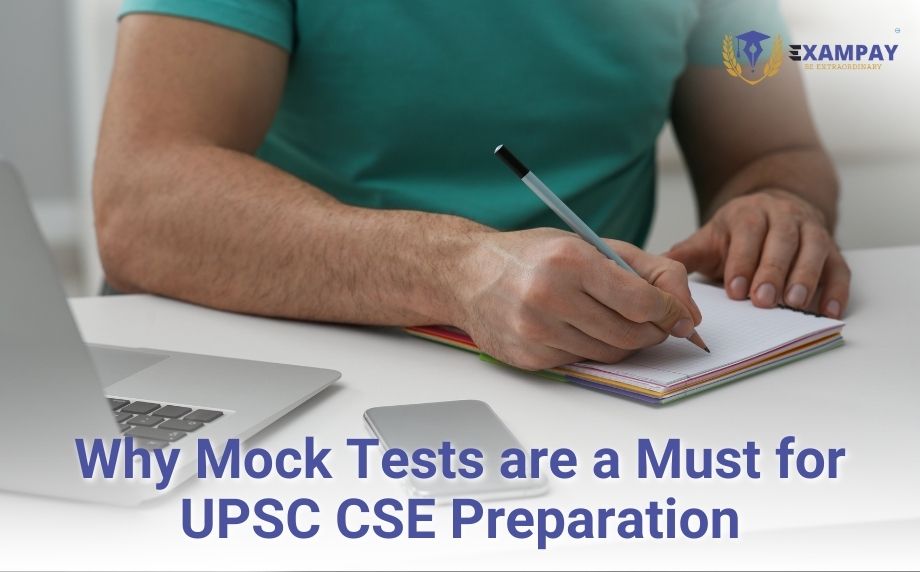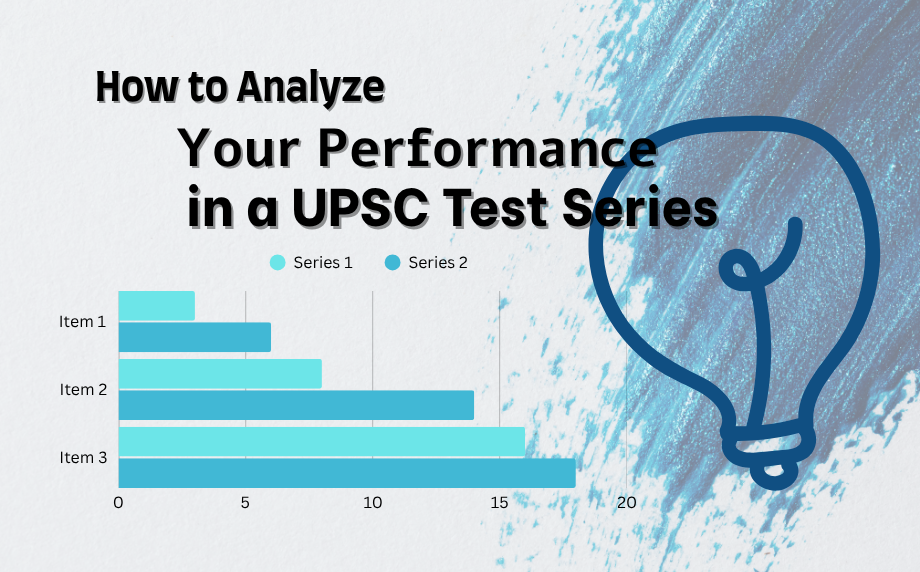Preparing for the rigorous UPSC examination requires careful planning and a strategic approach. At the core of this preparation lies the indispensable role played by UPSC mock test series. Taking mock tests is invaluable for developing and sharpening the skills required to succeed in the challenging UPSC exams.
The feedback received after attempting each mock test helps identify individual strengths and weaknesses. Ultimately, consistent preparation through multiple UPSC mock test series equips candidates with the optimum preparation levels needed to face the actual exams with confidence and emerge successful. In this article, we are going to share complete information regarding the role of the UPSC mock test series in exam preparation.
Understanding the UPSC Exam Format:
Before undertaking practice tests, gaining a complete grasp of the UPSC exam structure is essential. This involves thoroughly comprehending the layouts of the preliminary and main phases, encompassing question paper designs, time restrictions placed on each paper, and the assorted sorts of questions featured.
Developing such insight establishes a strong basis for productively planning for the exam. The preliminary stage initially screens candidates, restricting the pool through a primarily objective-type paper assessing general studies proficiency. Candidates who clear the prelims then face the main exam, comprising detailed question papers evaluating one’s command of both basic awareness and a chosen specialisation.
Benefits of UPSC Mock Test Series
Taking practice tests consistently allows you to finely tune your approach to answering questions under time pressure during the actual exam. Beyond just improving your testing skills, a full mock test series has additional important benefits. Some of the benefits we have discussed here.
1. Familiarity with the exam pattern and syllabus:
It serves to boost confidence by revealing how well you’ve retained knowledge from intensive study sessions. Spotting areas for further review becomes simpler after each practice exam.
This targeted self-evaluation aids in addressing lingering gaps before the final UPSC assessment. Perhaps most valuable is how simulated tests diminish evaluation anxiety. Experiencing similar test-taking conditions in advance familiarises candidates with the process.
2. Identification of strengths and weaknesses
They gain insight into personal strengths, weaknesses, and strategies through reflective performance reviews. Coming to fully understand one’s preparedness empowers applicants to strategically structure remaining practice
3. Mock tests as growth indicators
This is a highly effective method for strengthening your ability to quickly analyse prompts, organise your thoughts, and communicate responses clearly. While mock tests highlight room for growth, they also reveal existing skills.
Reflecting on both serves to chart a path forward tailored to an individual’s assets and opportunities. Continual self-assessment cultivates awareness of where more study is warranted while maintaining confidence in what has been mastered thus far.
4. Feedback on Performance:
Test feedback guides refine one’s approach. By examining mistakes, recognizing aptitudes, and focusing on areas needing work, one gains increased readiness for the UPSC examination, allowing a tactical and knowledgeable strategy.
How to Utilise UPSC Mock Tests Effectively?
To make the most of UPSC mock tests, it is important to mimic the real exam environment as closely as possible. Stick rigorously to the time limits so you can get a feel for the pace of the actual test. Look for trends in the types of questions asked and carefully scrutinise the reasoning behind your responses after completing each mock paper.
Steady preparation combined with frequent self-evaluation is crucial for progressing in your abilities and ultimately achieving success on the difficult UPSC examinations. While practising consistently, vary the complexity and length of your sentences to replicate natural human speech patterns.
Common Mistakes to Avoid in the UPSC Mock Test Series:
A pivotal stage in the UPSC preparation process involves carefully evaluating self-preparation through mock exam series. In the following exploration, we will share important stumbling blocks to circumvent, refining your strategic method and upgrading the productivity of your preparation.
- You need to make sure to fully cover all parts of the UPSC exam topics and also do not ignore any section because questions can come from anywhere.
- You must practise strategic time management during practice tests. Do this to make the test setting feel real and get better at pacing yourself.
- You need to go over what you learned often. This helps stick in your mind and keeps important facts from being forgotten on test day.
- You need to look at past exams to learn the kinds of questions asked and how the exam has changed over time. This will help you get ready by focusing on important topics.
- You must take each practice test and review it closely to find any subjects you struggled with, understand why you made mistakes, and focus on getting better at those things.
Online UPSC Mock Tests vs. Traditional Methods
While online UPSC mock test prelims offer candidates more ease and freedom in terms of when and where they can take practice tests, there are some aspects to consider when deciding between this method and the traditional pen-and-paper route. The digital option allows for greater flexibility since tests can be accessed from any internet-connected device at a time that fits one’s schedule.
However, relying too heavily on technology means candidates must have stable internet access and functioning hardware, otherwise technical difficulties could disrupt practice. One must also determine if on-screen testing suits their learning style as well as the paper format. Some applicants.
| ONLINE UPSC MOCK TESTS | OFFLINE UPSC MOCK TESTS |
| It is conducted over the internet. | It is conducted in physical mode. |
| It provides immediate feedback for quick analysis. | Feedback is mostly provided after the completion of the exam. |
| It offers flexibility in choosing time and schedule. | Candidates need to adhere to fix timetable managed by centre |
| It offers relevant internet related distractions | It provides a distraction free environment. |
Tips for Choosing the Right UPSC Mock Test Series:
Carefully choosing the appropriate UPSC mock test series is crucial for productive preparation. This guide reveals valuable recommendations, making sure your selection corresponds with the current syllabus, strengthening assurance for the UPSC examination.
Performance analysis after each mock test allows for identifying strengths and weaknesses, guiding further studying. Reliable series are updated each year based on exam pattern changes. They offer in-depth answer explanations for each problem asked.
1. Relevance to Syllabus
When selecting a UPSC exam preparation series, it’s important to thoroughly research the options and choose one with precise alignment to the UPSC’s latest syllabus. This ensures your preparation will be focused precisely on the topics and content areas that are most likely to appear on the upcoming examination.
2. Credibility and Reviews
When selecting a test series to assist with UPSC exam preparation, it is best to choose one with a proven track record of success and positive feedback. Look for an option that is well-reviewed and recommended by past candidates who have cleared the civil services examination. Evaluating reviews and recommendations will help.
3. Question Quality
It is important to carefully analyse the questions in your selected UPSC test series to ensure they adhere to the standards and level of difficulty seen in actual UPSC exams. Evaluate if the questions cover an extensive variety of topics from the UPSC syllabus to help you prepare for any subject that may appear.
4. Exam Simulation
When preparing for the UPSC civil service examination, it is crucial to practise taking mock tests that accurately mimic the real conditions of the exam. Opt for the UPSC mock test series that closely replicates the actual experience of writing the exam. This includes properly simulating the timing restrictions and question format you will face on exam day.
5. Technology and Platform
When considering an online platform for UPSC mock test prelims, it is important to analyse the technology and user-friendliness of the system to guarantee a smooth and effective experience in your exam preparation.
Some key factors to examine include the ease of navigation between test sections, the functionality and speed of the test delivery platform, and how user-friendly the interface is.
Conclusion:
The UPSC Preliminary examination acts as a crucial hurdle that many aspirants fail to clear, with approximately 97 out of every 100 candidates not making it past this stage. Taking mock tests modelled on the UPSC prelims question paper format plays a significant role in both assessing current preparedness and further strengthening areas in need of improvement.
It provides vital feedback through simulated question papers that mimic the real exam. This allows candidates to identify gaps and work towards filling them before the final date. Such UPSC test series serve as an important evaluation tool, helping ensure that one is as well-versed and confident as possible when it comes to facing the actual preliminary examination.
FAQs:
1. Why is the UPSC Mock Test Series important?
It not only examines one’s knowledge across a wide range of topics, but also evaluates other important aptitudes such as effective time management, attention to detail, and the ability to perform under pressure.
2. What are the benefits of the UPSC Mock Test Series?
It should provide comprehensive coverage of all relevant subjects as tested. Questions should mimic actual exam style and level of difficulty.
3. Why is it important to choose well-suited mock test series for UPSC?
A well-suited mock test series should align questions with the latest topics emphasised on the exam.
4. Which type of UPSC mock test series is important to choose?
You should look for a series that provides comprehensive and accurate coverage of all subjects covered by the civil services preliminary and main exams.
5. Why is it important to consult the experienced one?
Consulting the experiences of those who have navigated the rigorous UPSC process before can help guide you towards a test series that provides a reliable and effective strategy for exam preparation.







